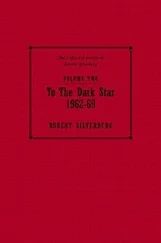I was prepared for the door to open fully now, without my even having to utter a word.
But it didn’t.
“Miss Bourgani,” I finally said, though it sounded flat, a tone prompted by the door remaining mostly closed.
“It’s late,” she said.
“Forgive me,” I said.
“I’ve not been well,” she said.
“My fear of that was why I knocked,” I said, a statement that may actually have been as much as thirty-two percent true.
“I probably won’t emerge till Queenstown,” she said.
“I won’t trouble you again,” I said, thinking what I found myself not infrequently thinking: I do not understand women even a little bit.
“Good night,” she said.
“Good night,” I said.
Those eyes that twice I’d personally seen fill with tears seemed as if they might yet again. But the door moved and clicked shut before I could be sure.
I should have simply walked away. I’d already reconciled myself to having simply played a one-nighter in a provincial theater with a big guest star. But I didn’t walk. I leaned. Toward her door. I had the impulse to listen to her weep.
But there was no weeping from her cabin. Instead, I heard a sharp, low utterance by a man’s voice. And she responded in kind. None of the words were clear. But the situation seemed very clear.
I backed away. This suddenly felt terribly familiar. Boyhood familiar. A memory hooked into the same part of my brain as catching frogs and skipping stones and playing mumblety-peg in an empty lot and hitting a rubber ball with a broomstick handle while pretending to be Big Ed Delahanty; or more like falling and flaying both my knees while rounding third base at a manhole cover or spearing the side of my foot with my pocket knife playing Flinch or instantly, drastically regretting throwing a caught frog into a bonfire; or like all of that mixed together, good and bad: me placed outside a closed door in the hallway of some actor’s boardinghouse or cheap hotel with my mother letting herself be a woman in a woman’s body with a woman’s needs but with me being a boy who basically knew what was going on but didn’t know nearly as much about it as he wanted and who wanted to expunge from his mind the thought of her doing something like this with a man but who also, deeper in that mind, wanted in some classic way to be the one in her arms. My standing there in a first-class corridor outside Selene’s door was drastically different, of course, but similar in just enough ways that I wanted to wipe my hands hard on something and maybe spit, and I turned and strode down the corridor, wondering who the hell this might be inside there with the woman who I myself jazzed just last night. Some dude. Some leading man type. The next actor for her to hold in the next filmed episode of Selene Bourgani’s life.
I stepped out onto the promenade.
And I looked to my right. Her two windows. The parlor lit. The bedroom dark.
I had to know one thing. But at least I was above spying in her window.
So I stepped back into the corridor. I turned right — away from her — and moved along the few short steps to the doorway that led into the writing room and library. I stopped. I turned and faced down the corridor toward Selene’s suite. I was maybe twenty yards from her door.
I waited. For a few moments I tried to remember what she was wearing, from the little of her shoulder I’d seen. I’d been so instantly and totally riveted by her eyes — I wished I’d looked more carefully into her eyes when we’d been together — that I couldn’t even say for sure whether her shoulder was covered in crimson silk. It might have been. I’d never expected a man to be with her, so I just couldn’t say.
Then I stopped trying to remember and simply waited. This wasn’t jealousy, after all. This was curiosity. This was bemusement. I could just wait. I stepped aside for people who wanted into the writing room and who wanted out. I did that half a dozen times. Maybe more. I waited and I tried to look as if I was expecting to meet someone, and people simply excused themselves to go around me, and I excused myself and let them, and I waited.
And then, with no one else in sight at the time, I heard her door opening. I started to take a step forward, going in slow motion, ready to speed up as the man emerged so that I could seem simply to be coming out of the writing room.
But the man emerged and immediately turned to head forward in the corridor, never noticing me, and it was just as well for a couple of reasons. I’d stopped cold and I was sure I was gaping, and I was glad not to appear suspicious to him. Because it was Walter Brauer.
The next time I saw Selene Bourgani, it was nearly ten o’clock on the last night of the last voyage of the R.M.S. Lusitania . We were in the War Zone and due to arrive in Queenstown tomorrow afternoon.
I wandered into the back of the large mahogany-paneled first-class Lounge and Music Room, its Georgian easy chairs and settees all turned to face the piano-end of the place and holding all the swells, every sitting space filled and all the standing spaces in the room as well. The traditional last-night talent concert was under way, a benefit for the Seamen’s Charities.
I entered as they were laughing and applauding a man in a tux who was catching the last of half a dozen oranges he’d been juggling. I lingered at the back door for a moment, and a young woman, smartly dressed — one of the voyagers doing a bit of volunteer work — sidled up to me with a stack of gold-embossed programs, which were selling for ten cents each. “The Welsh Choir has already sung,” she said. “But Selene Bourgani’s going to perform soon. Buy a program to remember her? It’s for the cause.”
I gave her a quarter and told her to keep the change for the cause. I shoved the program in my pocket and began to edge my way around the room, excusing myself, squeezing through the standees, wanting to get closer to the front, more than a little surprised that Selene had emerged for this, but maybe not so surprised, reflecting on it as I moved: this was a public event, an audience, a keeping up of the identity she offered to the world, even as she played some other, quite private role.
I’d already settled into the only conclusion I could about Brauer and Bourgani. She was the contact he’d been intending to make on the Lusitania. She was the person of interest to the German Secret Service, the reason Brauer was traveling in first class. The “delivery” in the coded message almost certainly referred to Selene Bourgani. I’d accepted this as the only possible conclusion. And yet I was baffled as hell.
A man was ragtiming “By the Beautiful Sea” on the Broadwood grand and I found a place against a support pillar near the front where I could see between heads to the performance space. The pianist was followed by a Scottish comedian. I could barely understand the heavily brogued words of his jokes, much less their humor. Some in the audience seemed to catch on — the Scots, no doubt — but most were politely waiting for the next act. I endured this for a time, letting my mind drift to trivial things, and finally I looked around the room.
Edward Cable was sitting in one of the easy chairs in the second row, his arms pulled stiffly to his sides. I sensed this much from his place and his pose and from the manner of the women on either side of him, not to mention from their gender: he was alone, having arrived early to the event, with nothing else to do, pining for his lost companion. The comic tended to raise his voice to a near shout at the climax of each joke. One of those shouts came as I watched Cable. He made the slightest flinch at the volume and did not otherwise move.
Then the comic was done. I looked to the front. A tuxedo bounded up and began talking, but I did not listen. My gaze slid on to the far side of the room. And there stood Selene. She was waiting to go on. Her long, empire-waisted dress was sleeveless, as was her sea-green wrap, and she wore long, black gloves. Her throat and the swell of her chest were bare, as were her arms from her shoulder to the middle of her biceps. I found myself stirred most by the unexpected nakedness of that six inches of arm.
Читать дальше












